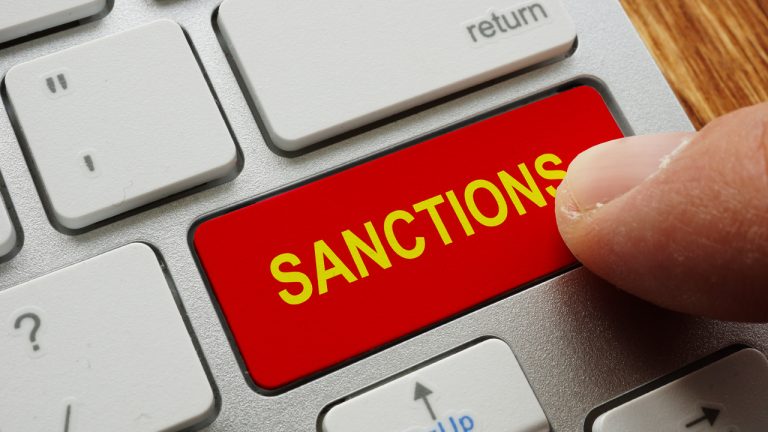
On August 8, the ethereum mixing service Tornado Cash, and all the crypto addresses associated with the platform, were officially banned by the U.S. Treasury Department’s Office of Foreign Asset Control (OFAC). Following the ban, the internet hosting service for software and open source code development, Github, erased some of the Tornado Cash commits and suspended some of the project’s contributors.
Tornado Cash Github Contributors Suspended from Github, Blacklisted ERC20s Left to Liquidity Providers
Tornado Cash has become a topical conversation in the world of cryptocurrencies as the U.S. government decided to ban the privacy-enhancing ethereum mixing service on Monday. The U.S. Treasury Department’s watchdog OFAC did not disclose exactly why Tornado Cash was sanctioned but it is suspected that it was due to the North Korean hacking syndicate known as Lazarus Group.
My @GitHub account was just suspended 🤷
Is writing an open source code illegal now?
— Roman Semenov 🌪️ 🇺🇦 (@semenov_roman_) August 8, 2022
Lazarus Group associates allegedly used Tornado Cash to mix funds. On April 15, 2022, the official Tornado Cash Twitter account explained that it had blocked flagged ethereum addresses listed on the OFAC Specially Designated Nationals And Blocked Persons list (SDN). “Tornado Cash uses [a] Chainalysis oracle contract to block OFAC sanctioned addresses from accessing the dapp,” the project’s social media account said at the time. The Tornado Cash Twitter account added:
Maintaining financial privacy is essential to preserving our freedom, however, it should not come at the cost of non-compliance.
Now reports detail that developers that have contributed to the Tornado Cash codebase on Github have been suspended and a few commits have been deleted. Tornado Cash’s founder, Roman Semenov, explained that his Github account was suspended. “My Github account was just suspended. Is writing an open source code illegal now?” Semenov asked. According to a Twitter user dubbed “Bowtiediguana,” all the addresses OFAC associated with Tornado Cash hold roughly $437 million in stablecoins like USDC and USDT, alongside ETH and WBTC as well.
Circle just frozen 75,000 USDC belonging to unsuspecting Tornado users, as well as 149 USDC donated to the project. pic.twitter.com/GBS41FtZvB
— banteg (@bantg) August 8, 2022
After the OFAC ban, Circle blacklisted all of the usd coin (USDC) associated with the Tornado Cash platform. Bowtiediguana expects Tether and Bitgo, the custodian of WBTC, to do the same thing, as these ERC20 tokens can be frozen at the smart contract level. The defi educator also expects the ERC20 custodians like Bitgo to “suspend redemptions of the tainted WBTC, rendering those tokens worthless.” Bowtiediguana added:
Liquidity providers will likely end up as bagholders for blocked WBTC (and stablecoin) assets if they do not pull liquidity from DEX *immediately*.
Ethereum Proponent Says OFAC Ban Was the ‘Opening Shot of Big Brother’s Attack on Crypto’
Meanwhile, after the ban, a great number of crypto community members discussed the U.S. government’s actions. “I’m sure the bad guys will stop using Tornado Cash because it’s ‘illegal,’” Shapeshift founder Erik Voorhees wrote. “Just like they don’t use illegal weapons, smuggle illegal drugs, or illegally launder money through every means they can find. Law-abiding Americans are the only ones hurt by this,” Voorhees added. Ethereum proponent Ryan Adams called the ban an attack on crypto.
The outlawing of Tornado Cash and freezing of $USDC infuriates me.
It’s a war between the state and our financial freedom at this point. I’m afraid this is just the beginning.
We need to fight for our freedom!
— Aku 👀 (@AkuRypto) August 8, 2022
“Today the US sanctioned Ethereum addresses associated w/ a privacy service called Tornado cash. Circle immediately froze the USDC in those accounts. GitHub suspended contributors to Tornado. If you were waiting for the opening shot of big brother’s assault on crypto this was it,” Adams said. Crypto proponents discussed other ideas like decentralizing Github in a censorship-resistant fashion and others talked about creating “new instances of the Tornado contract.”
What do you think about OFAC banning the ethereum mixing application Tornado Cash? Let us know what you think about this subject in the comments section below.




















